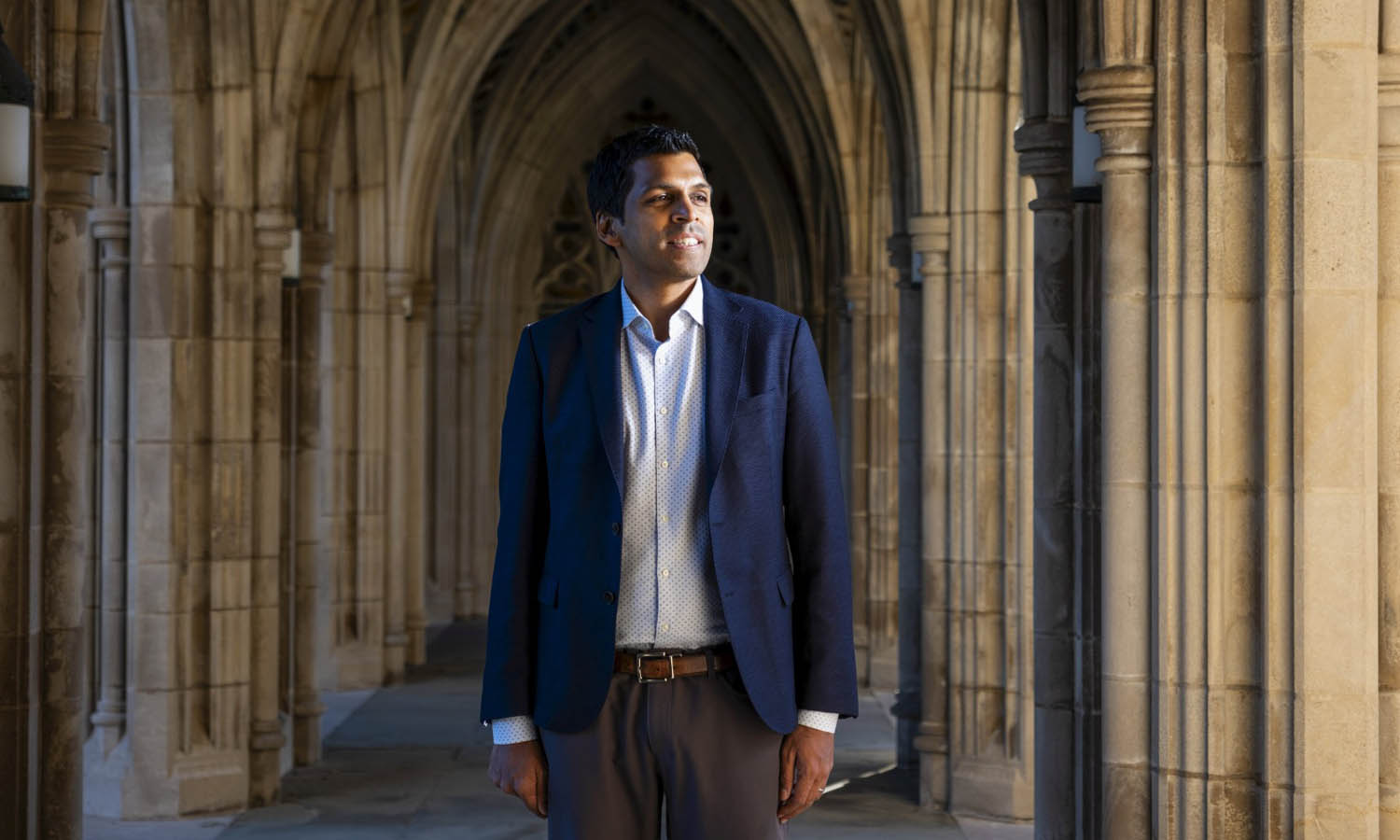OpenAI Hires Former White House Official as Its Chief Economist
OpenAI hopes to eventually build AI that changes office work, scientific research and many other tasks, and the company acknowledges that its technologies could eventually replace some workers.;

Cade Metz
OpenAI, where executives and researchers dream of building artificial intelligence that could one day change the world, has hired a chief economist with ties to two Democratic presidential administrations. OpenAI said Tuesday that it had hired Aaron “Ronnie” Chatterji, a professor of business and public policy at Duke University’s Fuqua School of Business. He previously served as a senior economist in President Barack Obama’s Council of Economic Advisers and as chief economist at the Commerce Department under President Joe Biden.
The addition of a chief economist is indicative of OpenAI’s enormous ambition and where its executives see their company in the tech industry’s pecking order. Silicon Valley giants like Google and Facebook hired seasoned economists early in their transformations from promising startups into trillion-dollar companies whose technologies changed global markets.
OpenAI hopes to eventually build AI that changes office work, scientific research and many other tasks, and the company acknowledges that its technologies could eventually replace some workers. The company has also spent months negotiating with investors, chipmakers and governments around the world to build new chipmaking plants and expand the pool of computer data centers used to build advanced AI.
“We are going to need big investment from both the public and the private sector to make sure this infrastructure is in place, so that we can remain competitive as a country and harness the benefits of the technology,” Chatterji said in an interview with The New York Times.
The move is also the latest in a line of high-profile hires and appointments by the San Francisco startup as it attempts to move past a year of turmoil. Last November, four members of the OpenAI board ousted its CEO, Sam Altman. He was reinstated five days later after Microsoft, the company’s biggest investor, offered to hire its entire staff.
Since then, OpenAI, the maker of online chatbot ChatGPT, has brought in a who’s who of tech executives, disinformation experts and AI safety researchers. This summer, it named Chris Lehane, a lawyer who served in the Clinton White House, as its vice president of global affairs.
The company has also added seven board members, including Paul M. Nakasone, a four-star Army general who ran the National Security Agency, and Lawrence Summers, the former Treasury secretary who worked with Chatterji in the Obama White House.
“Professor Chatterji’s deep understanding of the dynamics that shape our economy and society will guide OpenAI’s mission to create AI tools that fuel growth, solve complex challenges and foster long-term prosperity,” Summers said in a statement.
(The New York Times sued OpenAI and Microsoft in December, claiming that they had infringed the Times’ copyright in training AI systems.)
In 2002, four years after it was founded, Google hired University of California, Berkeley economist Hal Varian, who helped design Google’s online ad auctions — the heart of its business — and has spent more than two decades shaping Google’s corporate strategy and public policy. This summer, in the Justice Department’s antitrust suit against Google, Varian was called to testify over memos he sent not long after joining the company.
“Hal Varian did a brilliant job for Google on many fronts, from helping them build new revenue models to predicting how technologies would affect the economy,” said Erik Brynjolfsson, director of the Stanford Digital Economy Lab. “There are a variety of things you could do with OpenAI’s technology that an economist can help them understand.”
During his most recent stint at the White House, Chatterji helped coordinate the Biden administration’s implementation of the CHIPS and Science Act, a 2022 law that authorized roughly $280 billion in new funding for the development and manufacturing of computer chips in the United States. His understanding of that project — and his political connections — could help OpenAI as it seeks to create additional computing power for training AI systems.
Chatterji, who has spent years exploring the effect of technological innovation on the larger economy, could also help the company steer through its potential impact on the economy.
A paper written in part by OpenAI researchers estimated that 80% of the U.S. workforce could have at least 10% of their work tasks affected by AI technologies and that 19% of workers might see at least 50% of their tasks impacted.
The worry among some experts, including Brynjolfsson, is that these technologies could boost the productivity of the most skilled and wealthy workers while replacing others who have fewer resources.
“We have to make sure we develop these technologies in a way that the benefits are distributed evenly and don’t create the divides that we have seen with previous generations of technology,” Chatterji said.

